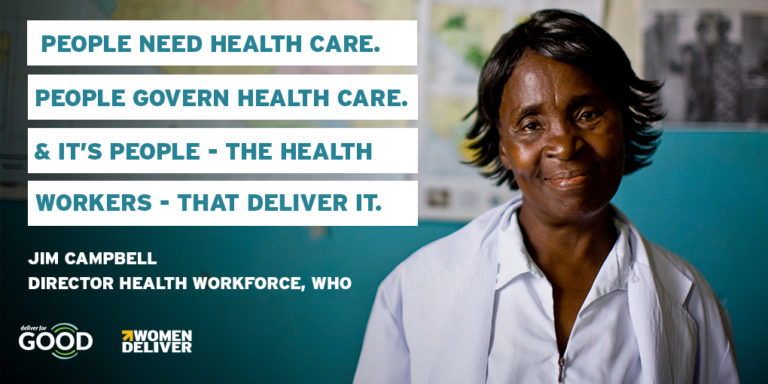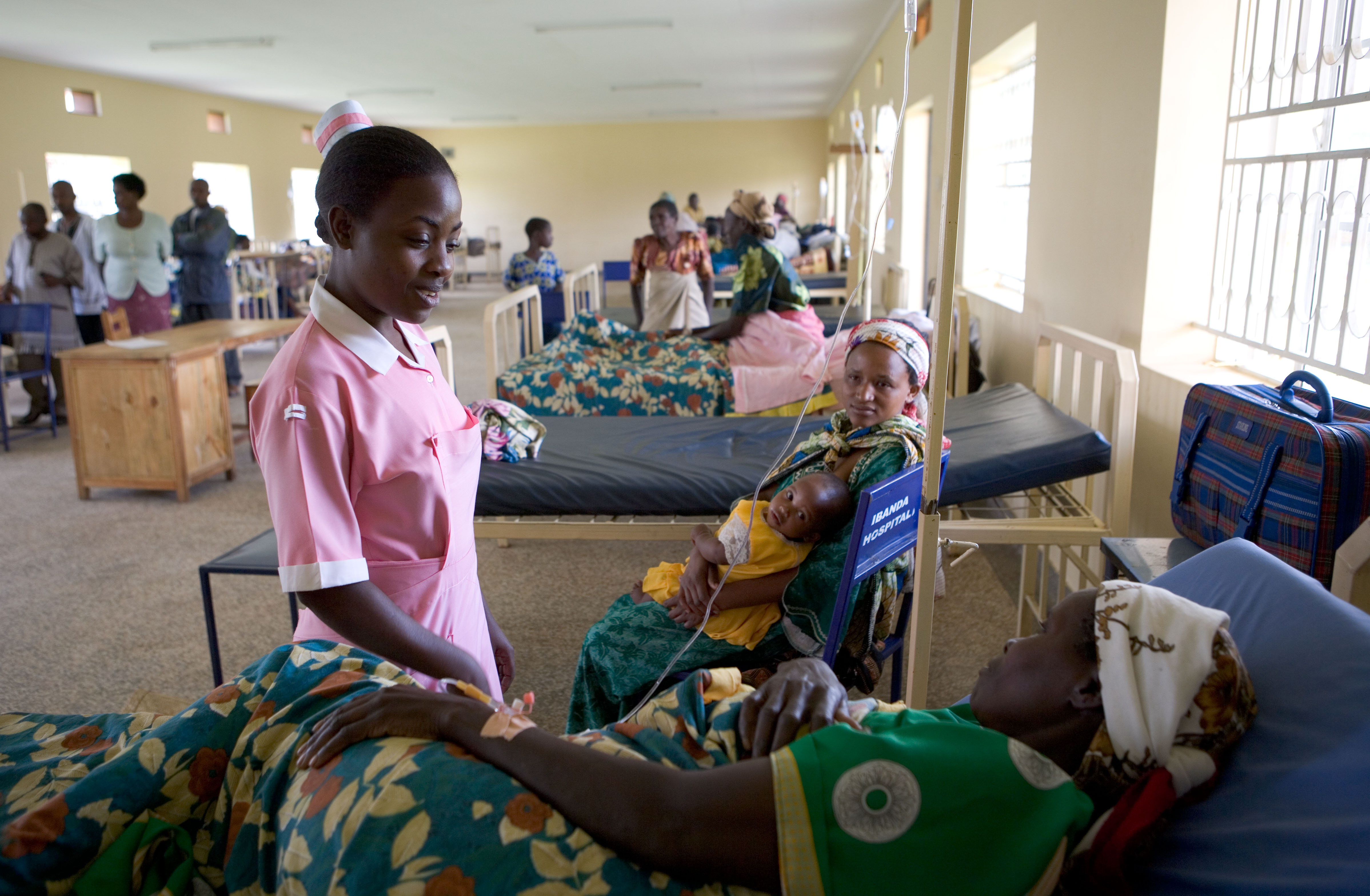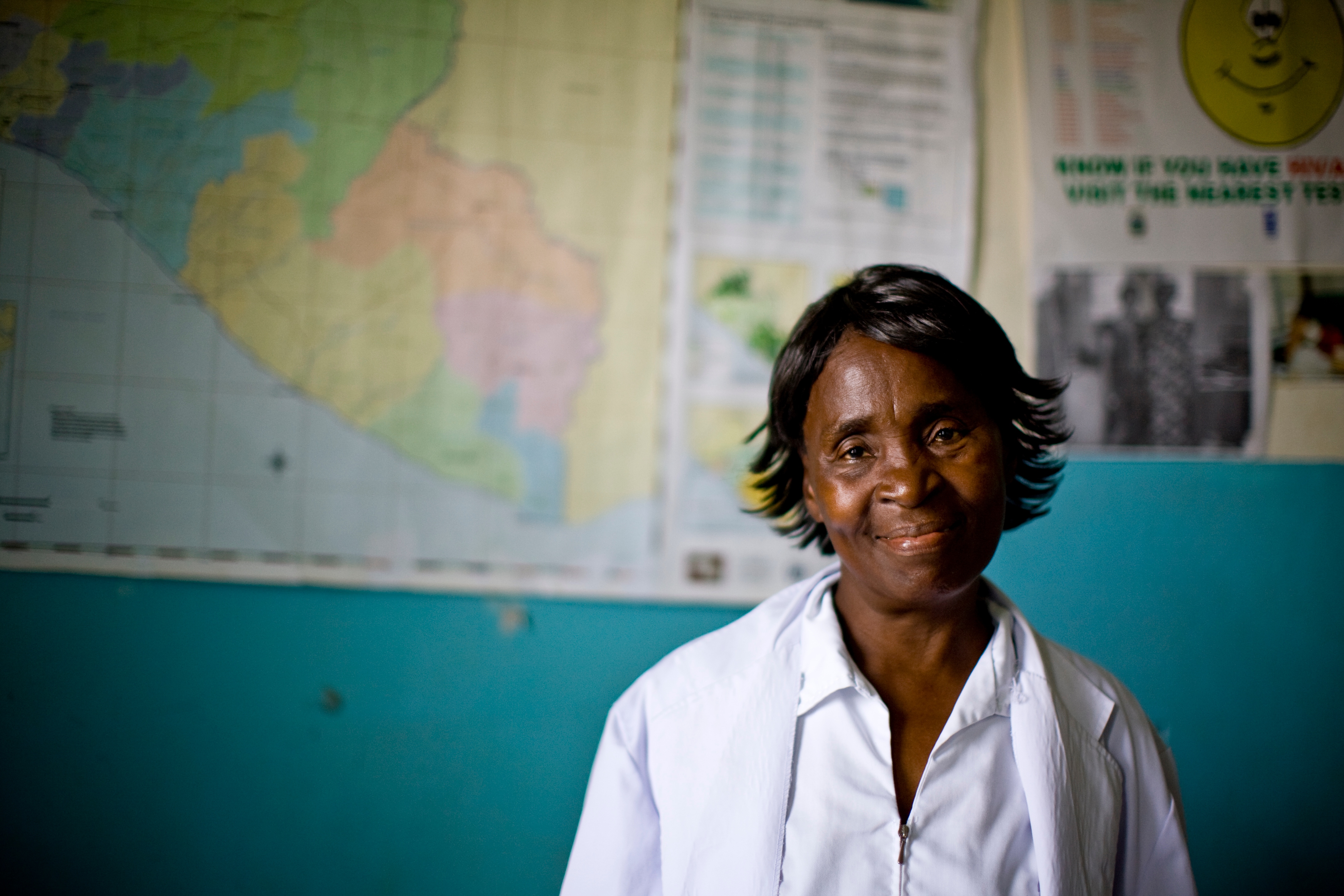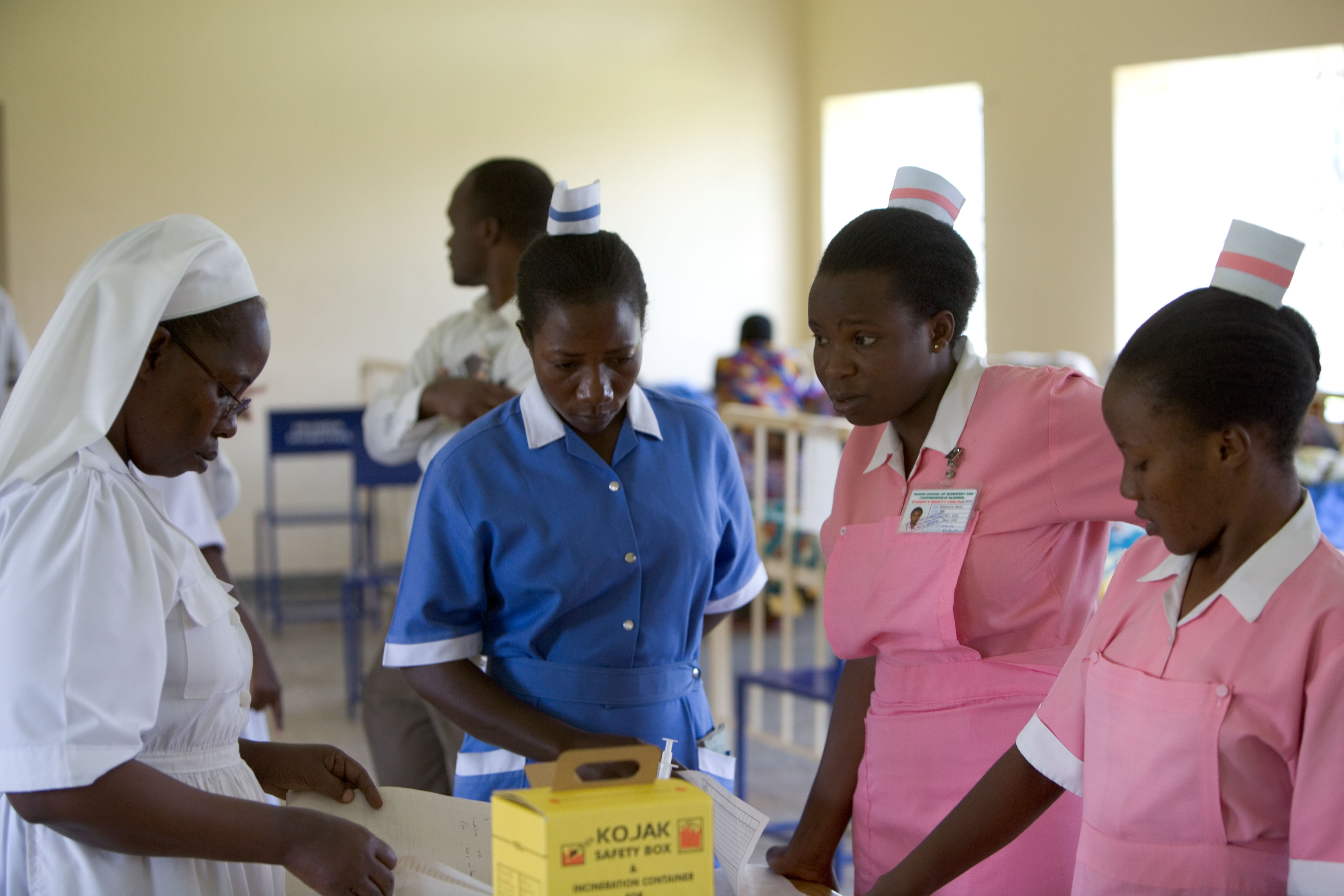Invest in health workers for an ‘SDG dividend’

What’s the first thing that comes to mind when you see a list of names including Winnie Byanyima, Melinda Gates, Leymah Gbowee, Katja Iversen, Christine Lagarde, Phumzile Mlambo-Ngcuka and Malala Yousafzai amongst others? Achievers? Influencers? Leaders?
It’s an incredible list, of incredible women. And they have something in common: members of the G7’s first ever Gender Equality Advisory Council, established by Canada as part of their 2018 G7 presidency, to advance gender equality and women’s empowerment across all areas of the G7’s work.
The Council’s report MAKE GENDER INEQUALITY HISTORY is resolute and persuasive. It calls on G7 leaders to take concrete actions to ensure that girls and women are safe, healthy, educated, heard and visible. The recommendations reinforce the SDG goals and targets. One of the priority areas is to deliver comprehensive, women-centered and culturally appropriate health care for all girls, women and gender diverse people. The Council sets out 8 recommendations to achieve ‘gender-responsive health systems [that will] uphold girls’ and women’s essential rights to health, and promote safe, healthy, and functioning societies and strong economic growth and development’. These include Universal Health Coverage (UHC), sexual and reproductive health and rights (SRHR), access to quality maternal and newborn health, food security and nutrition, the health needs of girls and women in conflict and humanitarian settings and the meaningful engagement of adolescent girls and young people.
The G7 has recognised the Council’s work and its focus on comprehensive health services for girls and women. In its Charlevoix G7 Summit Communique of 9 June 2018 the G7 has committed ‘to promote and protect women’s and adolescents’ health and well-being’, ‘to supporting strong, sustainable health systems that promote access to quality and affordable healthcare’ and that ‘gender equality is fundamental for the fulfilment of human rights and is a social and economic imperative’. The G7 commitment is welcomed.

Converting commitments into action will depend on one key issue: the role of women as providers of care. Their role as health workers. Women represent the majority of the human resources we have to expand and transform the world’s health systems and fulfill the goals of universal health coverage and sexual reproductive health and rights. In 2016, the UN High-Level Commission on Health Employment and Economic Growth drew on compelling new evidence that 67% of all health workers are women; nearly seven out of every ten jobs in the health sector. The average in all other labour sectors is 41%. These women, be they managers, midwives, nurses, pharmacists, physicians, therapists and numerous other health occupations, are the foundation of health systems and a critical factor in whether we attain comprehensive health services for girls and women. It is these women who are Working for Health. Indeed, the ambition of Universal Health Coverage will be won or lost on how governments and health systems manage people. People need health care. People govern health care. And its people, the health workers – mostly women – that deliver it.


Population need and economic demand for health care workers is ever increasing. Across low-, middle- and high-income countries, everyone needs health workers. But there are needs-based shortages and demand-side challenges. The World Health Organization estimates that in Africa alone an additional six million health workers will be required by 2030. Pessimists might suggest it is not feasible to address this gap. However, reframe it and instead you have an unparalleled investment opportunity in an ‘SDG dividend’: investments in girls’ education (SDG4) that leads into health jobs which strengthen health systems (SDG3) and promotes decent work for girls and women (SDG8) and which improves access to sexual reproductive health and rights (SDG5). To make this happen, however, gender equality and women’s economic empowerment must be more than rhetoric in communiques and statements. They must also become foundational elements of the policy and investment decisions in our health, education and social protection systems.
Gender pay gaps and lack of opportunities for women’s career advancement in the global health workforce must be addressed, as well as tackling the global prevalence of unpaid care work, which is disproportionately performed by women and most always undervalued.
The recommendations of the Gender Equality Advisory Council can be instrumental in leveraging this ‘SDG dividend’. They are a start. Argentina’s Presidency of the 2018 G20 is up next. Encouragingly, Argentina has included gender equality across all their sectoral meetings. In the health sector discussions, this includes a focus on the gender pay gaps and the career and leadership opportunities for women health workers. New data prepared by the World Health Organization identifies a 21% gender pay gap in the health sector. For similar hours worked, women health workers earned on average one fifth less than men. In the midwifery and nursing occupations a gender pay gap of 12% is observed.
When women are more than 85% of the midwifery and nursing workforce, why are men earning more?
The 2019 Women Deliver Conference has an opportunity to build upon the work of the Gender Equality Advisory Council, the Charelevoix Summit Communique and the pending G20 statement. Addressing the women in the health workforce, their education, employment and opportunities, and ensuring equal pay for equal work in the health sector would immediately benefit millions of women worldwide. Women deliver comprehensive health services for girls and women. Women are working for health. Invest in health workers for the SDG dividend.


